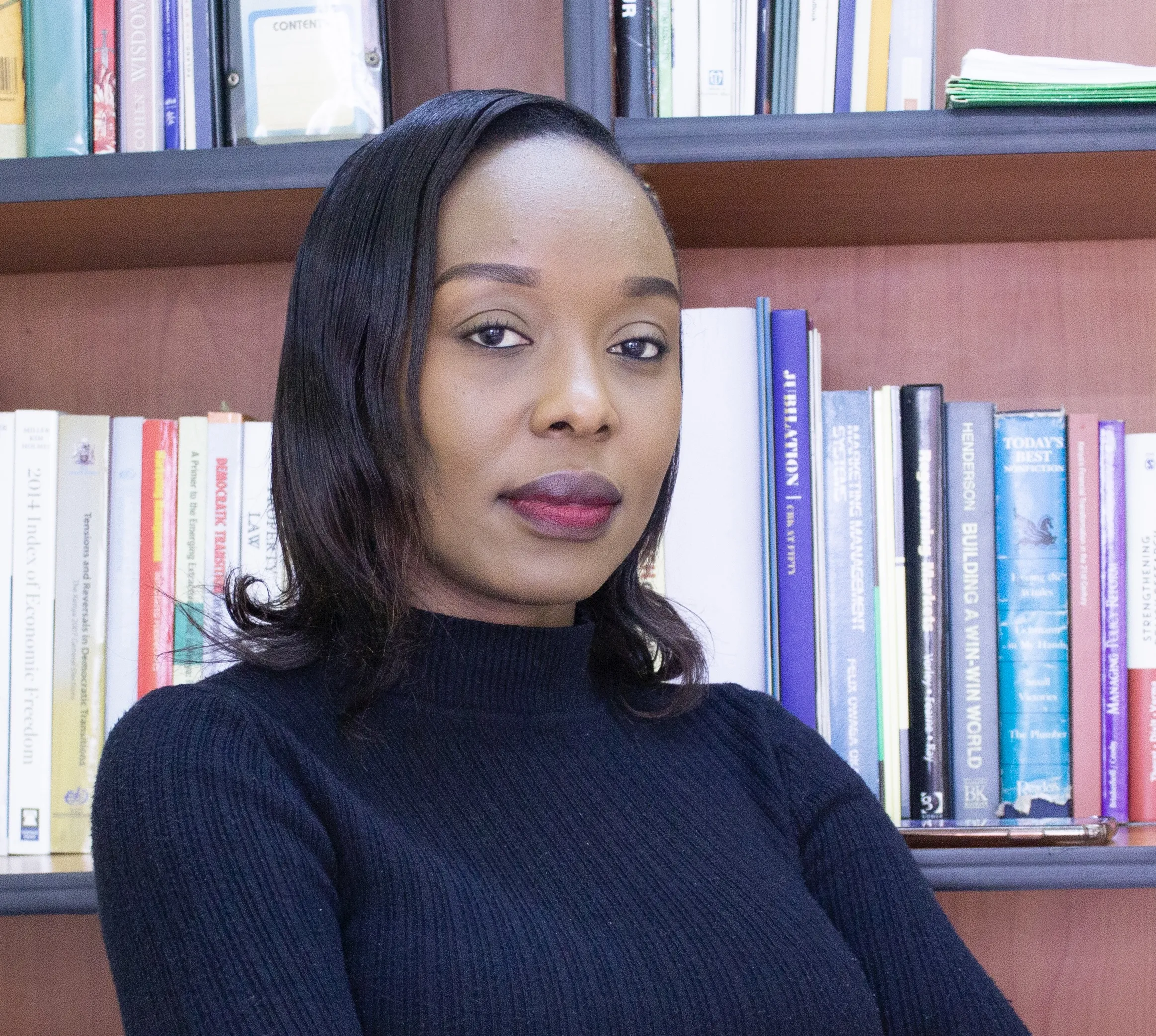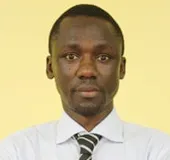-
CENTRES
Progammes & Centres
Location
 PDF Download
PDF Download 
Jackline Kagume and Kwame Owino, “Creating A New Global Financial Architecture for ‘The Africa We Want’,” ORF Issue Brief No. 761, December 2024, Observer Research Foundation.
The Political Failures of the Existing Framework
At the core of the political problem is the underrepresentation of Global South voices, particularly Africa,[a],[1] in the current International Financial Institutions (IFIs). This imbalance is reflected in the governance structures of the IFIs, where decision-making power is concentrated in the hands of a few nations. Despite Africa’s increasing economic significance, its 54 sovereign states remain marginalised in key decisions affecting their economies.[2]
The lack of inclusivity in global financial institutions is evident in voting structures and quota systems, which favour developed nations based on outdated economic indicators. As a result, African nations, despite their significant share in the world’s population, have limited agency over global financial priorities and policies.
Agenda 2063[3]—a strategy that aims to transform Africa into a global economic force, emphasising inclusive and sustainable development[4]—highlights the economic and political impact of externally driven policies, particularly those by the Bretton Woods institutions, on African states. However, the vision requires large amounts of resources, and the current global financial architecture[b] has failed to evolve to meet those needs. The proposed new financial architecture must empower African nations to shape policies that directly affect their economies. While Structural Adjustment Programmes prescribed by the IFIs are not solely responsible for current stagnating growth, they bear a significant part of the blame.
The second political issue is geographical, as most financial institutions are in territories of the Global North. The IMF and World Bank are headquartered in Washington, D.C., distant from African countries and their specific challenges. This geographical distance creates a perception that decisions reflect Northern interests and perspectives, rather than the needs of developing economies, including those in Africa. The dominance of these perceived ‘external’ IFIs in setting global financial rules reinforces a structural imbalance, subjecting African countries to policy prescriptions that are not aligned with their developmental needs. This ‘top-down’ approach undermines local ownership of solutions, impeding the long-term success of policy measures.
The third issue hindering global financial architecture reform is the absence of a common African position on the matter. Africa has struggled to reach consensus on important issues affecting the continent, including priorities for IFI reform, weakening its collective voice and slowing down progress. To be effective in global discussions, including at the G20 and other broader forums, African nations must present a unified front reflecting the continent’s collective priorities. This requires changes within Africa’s governance structures to develop, negotiate, and uphold a common stance.
The political challenges posed by the global financial architecture require political solutions. Fundamental reforms to the governance structures of IFIs are essential. The inclusion of the African Union as a G20 permanent member in September 2023 is a step toward greater representation, but further reforms are needed to give African nations greater influence within the IMF, World Bank, and other multilateral institutions. A second potential solution is to revise the quota systems and voting rights to reflect current global economic realities, particularly Africa’s growing significance.
A more decentralised approach to global financial governance is needed, bringing decision-making closer to the affected regions. Establishing regional financial hubs in Africa could bridge the gap between global financial institutions and African economies, enabling more inclusive and locally relevant solutions. Additionally, policy frameworks of IFIs should shift from uniform prescriptions to flexible, context-specific approaches, allowing African states to pursue development strategies aligned to their unique contexts and economic realities.
Agenda 2063’s vision of ‘The Africa We Want’ emphasises that reforms must be beneficial and sustainable by aligning with Africa’s long-term development goals. They should ensure not only greater representation of African states within global financial institutions but also structures that promote economic transformation.[5]
Reforms of Organisations with Economic Policy Roles
Globally, the primary organisations influencing economic policy are the World Bank, IMF, the World Trade Organization (WTO), the G20, and the Organisation for Economic Co-operation and Development (OECD). In 2024, the 38 members of the OECD account for up to 46 percent of global economic output,[6] its recent overtures to other regional bodies and granting partnership status do not make its reform a priority for countries in Africa.
The IMF and the World Bank are the most impactful institutions for the reforms needed to achieve the growth that the sovereign members of the AU have outlined in Agenda 2063.[7] Thus, reforms to these institutions should be Africa’s top priority.
Reforming the Global Policy for Debt Restructuring: From 2000 to 2015, for most countries in the African continent, economic growth was positive and sustained, with countries not experiencing conflict or other disasters achieving annual rates above 4 percent per annum. Although poverty reduction was slow, it showed a clearly positive trend that needed to be consolidated.
Coinciding with this period of rising growth was an international environment of low interest rates, prompting African countries to borrow from international markets. They developed a preference for issuing Eurobonds to secure global sovereign debts and gain flexibility, aiming to avoid the crowding-out effect associated with domestic borrowing.
Despite the risks associated with Eurobonds, the IMF’s ambivalence was perceived as tacit approval for African countries to turn to international financial markets. In 2019, before the COVID-19 outbreak, the sovereign nations of sub-Saharan Africa had accumulated US$115 billion in Eurobond debt.[8] The fallout of the pandemic, along with poor economic management, has since placed many countries into debt distress, with four (Chad, Ghana, Zambia and Ethiopia) defaulting on their sovereign debt.[c]
Debt restructuring and resolution remains chaotic, complex, and inefficient. The ‘Common Framework for Debt’ is hampered by debtors’ brinkmanship, with some resorting to favourable judgements, delaying restructuring and complicating matters for affected citizens. Governments must secure cooperation from diverse debtors with different interests and lowered incentives for quick resolution.
The clear reform objective is for the IMF to leverage its expertise to establish a coherent and credible new debt restructuring policy. This would create a more predictable global policy, reduce confrontational defaults, and enhance efficiency. Such a policy, serving as a global public good, would be unlikely to be developed by another global actor due to the need for coordination and associated risks. It would benefit distressed countries while promoting transparency and predictability in debt resolutions.
Special Drawing Rights Reform: Analysts differ on how to reform Special Drawing Rights (SDR).[d] An article in the IMF’s Finance and Development magazine for June 2024 claims that in 2021, the “entire African continent received only 5.2 percent of available SDRs.”[9] Since SDR allocation is most crucial for countries with limited alternative income sources to address domestic financial pressures, this current allocation appears overly restrictive. On the other hand, countries with larger economies are less dependent on the allocations provided by the existing SDR mechanism. The reform imperative is to create a mechanism that unlocks access without depleting resources for other uses, while maintaining proper actuarial balance.
Issue for reform of the lending instruments requires reconsideration of the Resilience and Sustainability Facility (RSF), the financing facility developed by the IMF to support countries from risks to their Balance of Payments that emerge from the impacts of climate change. While global warming and climate change is recognised, imposing borrowing conditions on African countries whose carbon emissions are much lower and for whom hydrocarbons exploitation is vital for development—seems unjust.
The current global financial architecture benefits creditors over debtors. African countries aim to strengthen debtor voices to counter the excessive power of creditor nations and corporations. This aligns with the Bridgetown Initiative’s[e] aim to amplify voices of debtor nations in designing, evaluating and addressing defaults in financial instruments. This change is not only about justice and sovereign respect but also makes economic sense, benefiting both Africa and the world.
The world’s development and income growth challenges are most salient in Africa. Once debt distress is alleviated, the focus should shift to accelerating growth. Attaining the Sustainable Development Goals (SDGs) for these countries would require the World Bank to supplement African governments’ efforts. However, the World Bank currently lacks the resources to provide this supplementary role on a meaningful scale. Its president acknowledges the need for more capital and to create newer mechanism for funding to enhance effectiveness in development.[10]
The ambitious SDGs will become even more elusive as debt distress and defaults impact African countries, slowing down poverty reduction and worsening inefficiencies in the provision of public services. As nations navigate debt resolution and restructuring, concessional lending from the World Bank will be crucial for recovery.
Conclusion
The IMF and the World Bank have historically served as anchors of the global financial system, but reforms are needed to adapt to the changing global economy and the contributions of different state actors. Their reform becomes necessary to preserve and strengthen the performance of national economies. For African countries, economic stability and growth will hinge on the reform of these institutions. The aim is to ensure that the global public goods they provide and organisational management they adopt serve that cause.
This brief first appeared in the volume, After the Great Fall: Revival and Restoration in Africa, which can be accessed here:
Endnotes
[a] This underrepresentation exacerbates the perception that global financial decisions are imposed on, rather than shaped by, developing countries, leading to policies that overlook Africa’s developmental challenges. This also contributes to the perception of bias and exclusion.
[b] For the purposes of this article, ‘global financial architecture’ refers to institutions managing global financial flows, including the International Monetary Fund (IMF) and the World Bank, and the mechanisms for allocating and distributing capital across regions.
[c] This issue was identified by officers within the IMF itself when Georgieva Kristalova and her colleague Ceyla Pazarbasioglu highlighted in 2021 the risks of impending sovereign debt defaults and the inadequacy of the G20’s Common Framework for Debt treatment in conditions of sovereign default.
[d] SDRs are an international reserve asset created by the IMF and used to supplement the official reserves of its member countries.
[e] The Bridgetown Initiative is an idea announced by the Prime Minister of Barbados to change the operations of global financing institutions to account for needs of developing countries and improve their overall effectiveness. See: https://www.bridgetown-initiative.org/wp-content/uploads/2024/09/SY043_Bridgetown-Initiative-3-0.pdf.
[1] David Passarelli and Patricia Justino, “The Demand for a Fair International Financial Architecture,” UNU-CPR Working Paper, 2024.
[2] Ian Taylor, “Africa Rising? BRICS - Diversifying Dependency,” 2011.
[3] “Agenda 2063: The Africa We Want - Goals and Priorities, 2015”
[4] African Union, Agenda 2063: The Africa We Want. Goals and Priorities, Addis Ababa, 2015, https://au.int/agenda2063/goals.
[5] UNECA, Africa’s Blue Economy: A Policy Handbook, Addis Ababa, United Nations Economic Commission for Africa, 2016
[6] OECD Statistical Release May 2024. https://www.oecd.org/en/data/insights/statistical-releases/2024/05/share-of-oecd-economies-in-global-gdp-broadly-stable-at-46-in-2021-compared-to-2017.html
[7] “Agenda 2063: The Africa We Want - Goals and Priorities, 2015”
[8] International Monetary Fund, “The Sovereign Debt Landscape in Sub-Saharan Africa: Regional Economic Outlook: Sub-Saharan Africa,” https://www.imf.org/en/Publications/REO/SSA/Issues/2019/10/25/regional-economic-outlook-sub-saharan-africa-october-2019.
[9] William Ruto, “A Consensus Is Forming for IMF Reform,” International Monetary Fund, June 2024, https://www.imf.org/en/Publications/fandd/issues/2024/06/A-Consensus-is-Forming-for-IMF-Reform-William-Ruto
[10] World Bank, “World Bank Announces New Steps to Add Billions in Financial Capacity,” https://www.worldbank.org/en/news/factsheet/2023/07/17/world-bank-announces-new-steps-to-add-billions-in-financial-capacity
The views expressed above belong to the author(s). ORF research and analyses now available on Telegram! Click here to access our curated content — blogs, longforms and interviews.

Jackline Kagume is a lawyer and the current programme lead for the Law and Economy Programme at the Institute of Economic Affairs (IEA) Kenya.
Read More +
Kwame has been instrumental in leading IEA Kenyas strategic intervention into the go-to think tank for Sub-Saharan Africa and the region. Having risen through the ...
Read More +